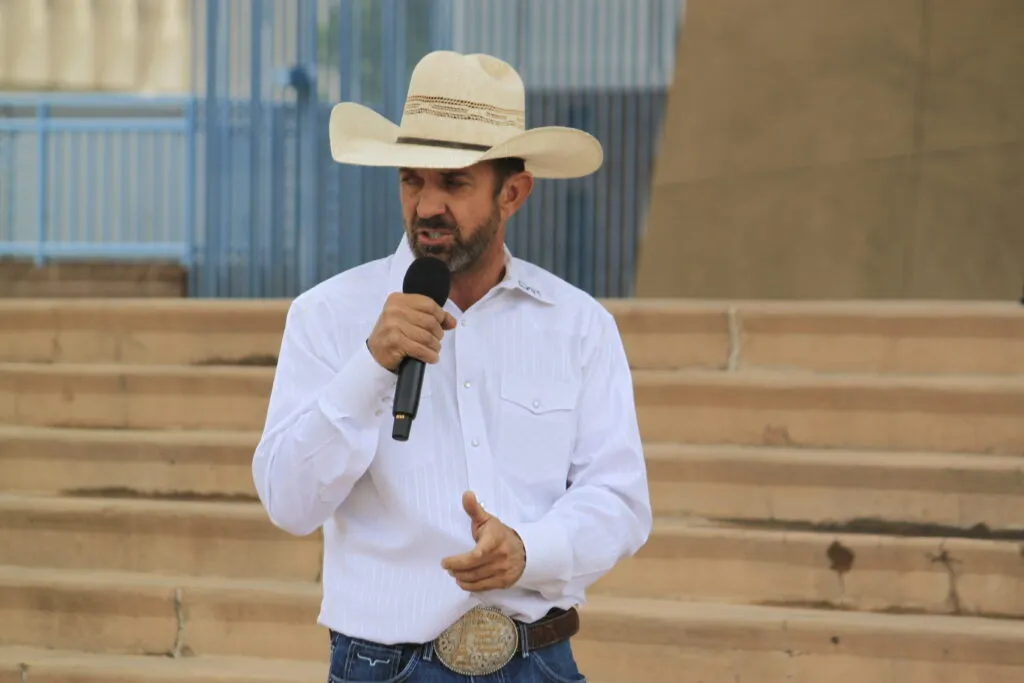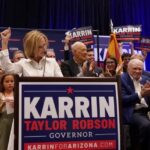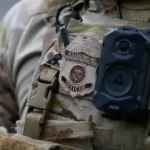
A federal appeals court panel on Tuesday upheld a federal misdemeanor trespassing charge against former New Mexico county Commissioner Couy Griffin, marking a significant victory for the Department of Justice’s Jan. 6 Capitol riot cases.
The U.S. Court of Appeals for the District of Columbia Circuit’s ruling reinforces the Biden DOJ’s legal foundation for more than 1,400 cases involving trespassing charges related to the riot, but it also sets up the potential for Supreme Court review should Griffin appeal the decision.

Griffin contended that the government failed to prove he knew that the Capitol was restricted because then-Vice President Mike Pence was inside and under Secret Service protection and that he therefore could not be charged under the trespassing statute known as Section 1752(c)(1)(B).
He argued that without this knowledge, the prosecution could not demonstrate that he “knowingly” trespassed into a restricted area. However, a majority on the three-judge panel dismissed this argument, ruling that proving knowledge of a Secret Service protectee’s presence was unnecessary.
In a 2-1 decision, Judges Cornelia Pillard and Judith Rogers emphasized that the statute under which Griffin was charged aims to bolster security for high-profile officials such as the vice president. Requiring prosecutors to show that trespassers were aware of the specific reason for the restricted status of the Capitol grounds would hinder the Secret Service’s ability to protect its charges, they wrote.
“The government was not required to prove that Griffin was aware that the Vice President’s presence was the reason the grounds remained restricted,” Pillard said, with Rogers concurring. They pointed out that the trespassing law, passed in 1971 in response to the assassinations of President John F. Kennedy and Sen. Robert Kennedy, broadly targets those who enter restricted areas unlawfully, regardless of their knowledge of Secret Service activity.
Judge Gregory Katsas dissented, expressing concern that this broad interpretation of the statute could lead to unjust consequences.
He noted that it could criminalize seemingly trivial acts, comparing the situation to a “hotel guest who walks past an ‘area closed for private event’ sign in search of an open bar if, unbeknownst to the thirst interloper, the First Lady is expected to attend,” Katsas wrote.
This ruling could set the stage for a Supreme Court review, especially considering the growing legal challenges around Jan. 6 prosecutions and the justices’ willingness to review distinct legal questions surrounding the cases.
Earlier this year, a case involving an obstruction statute, a charge levied against 259 defendants for allegedly obstructing an official proceeding under Section 1512(c)(2), was also brought before the Supreme Court.
The justices found by a 6-3 decision that the DOJ’s interpretation of the obstruction statute was overly broad. That ruling has since led to revised indictments for almost all defendants facing that charge, although the DOJ is still pursuing 13 cases under the statute in addition to charges against former President Donald Trump in the federal 2020 election subversion case handled by special counsel Jack Smith.
A separate defendant based in Florida, who has since been released, also tapped the Supreme Court in July to review the application of his charge under Section 5104(e)(2)(G), which makes it a crime to willfully and knowingly “parade, demonstrate, or picket in any of the Capitol Buildings.”
The case against Griffin began after he joined the crowd at the Capitol during the certification of President Joe Biden’s electoral victory. Although he was only sentenced to 14 days in jail, his appeal has been closely watched due to its potential implications for numerous other cases stemming from the riot.
CLICK HERE TO READ MORE FROM THE WASHINGTON EXAMINER
With the appeals court’s decision in place, the next step may be a review by the Supreme Court, which could redefine the scope of trespassing charges in these politically charged prosecutions if they are petitioned and agree to consider oral arguments on the merits.
Approximately 1,532 people have been charged criminally in federal court since the riot, according to the DOJ’s figures.




